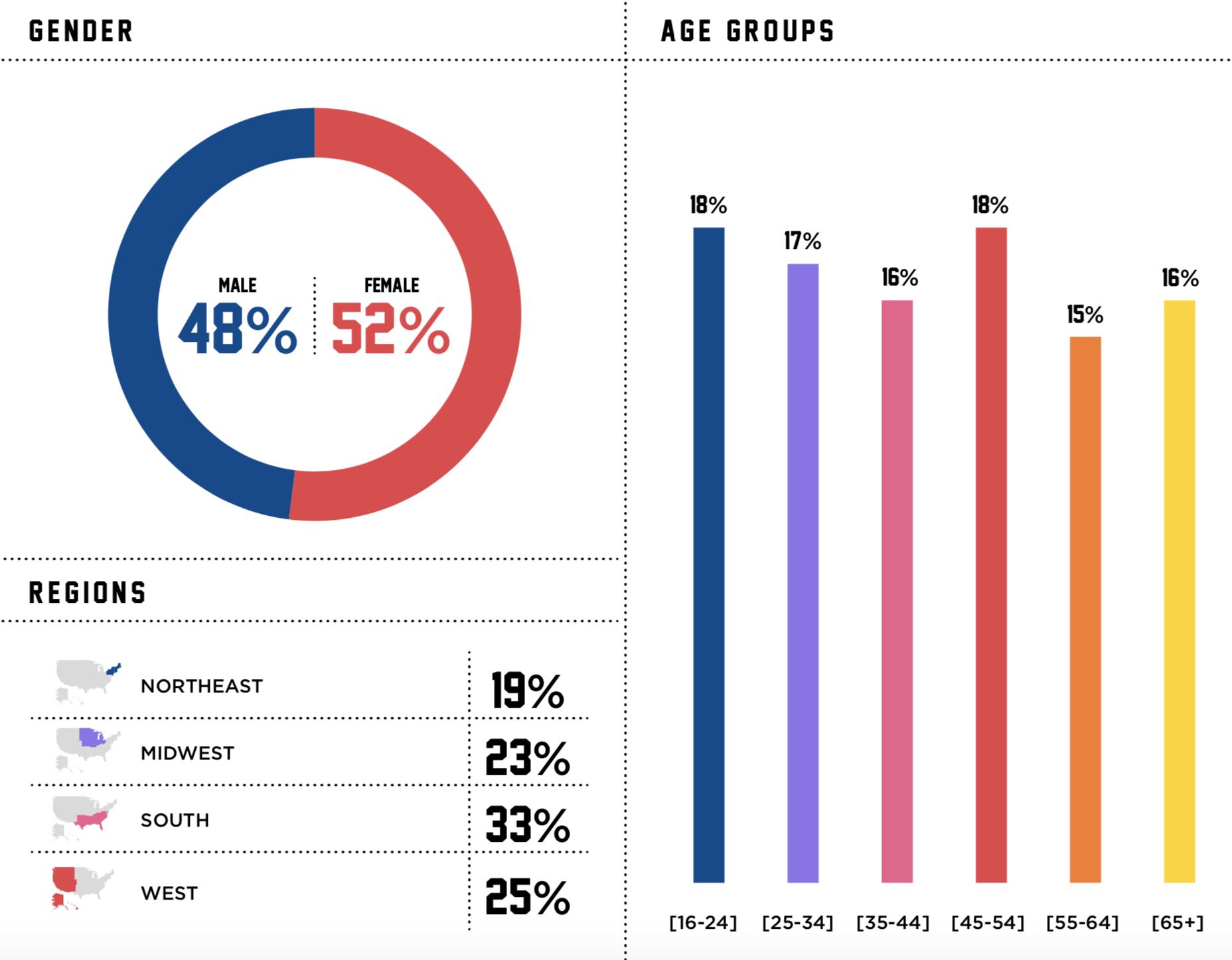While the importance of data privacy has always been highly regarded in the consumer mind, recent events such as the Cambridge Analytica scandal and the European introduction of the General Data Protection Regulation (GDPR), the California Consumer Privacy Act (AB 375), among others, have made that ring truer than ever. This raises the question: What does the average American think and do when it comes to their own data privacy and how do they rate the brands that hold their personal data?
The consumer is doing what they can which they see as restricting the personal data they share (32% express concern and as such, enter as little personal detail as possible when on their connected device) or being as secure as possible when it comes to setting secure usernames and passwords (80% agreement).
However, the reality is different – 64% admit to using the same username and passwords across multiple devices.
So while the consumer is taking what they see as the necessary steps, there’s the expectation that the device manufacturers and brands that hold their personal data will be acting responsibly – and at present, brands are failing:
57% of Americans believe that even the most reputable device manufacturers could be selling / sharing their personal data
54% of Americans agree they are worried about the devices collecting their personal data
47% believe that any personal data collected via smart/connected devices belongs solely to the individual
The concern is reflected in the Privacy & Trust Index with brands scoring low trust scores – WhatsApp the most trusted brand to hold personal details secure, Facebook the least trusted.
This is a clear warning to companies who hold personal data – there’s growing concern and confusion over ownership and usage – and as such, distrust across established brands. And with the negativity comes consumers starting to restrict and limit the information they share and how they engage within their devices.
Devices enable the average American but there’s growing concern in what they collect
For over half the American public, there’s concern in what is being captured, collected and used when it comes to the smart/connected devices they, by their own admission, can’t live without.
This disconnect is causing friction in not only how Americans use their connected devices but their willingness to share personal data within the devices and applications.
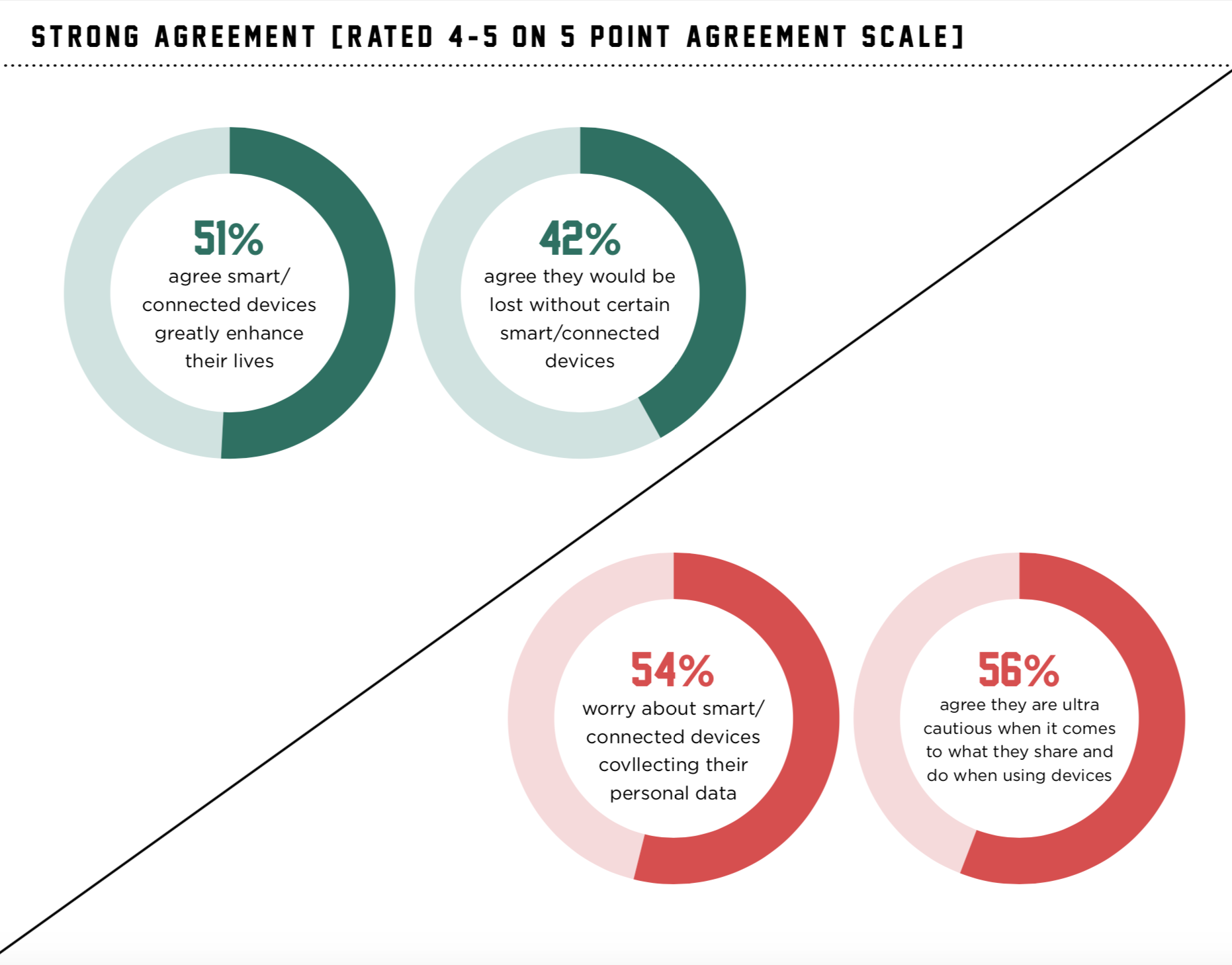
Demographics Best Discriminate Level of Concern
Overall, there’s varying degrees of concern when entering personal details when using Apps or software associated with the smart/connected device but these are more pronounced when looking at gender and age, with males the least likely to express any concern, while for the youngest demographic, just under a third are unfazed in providing personal details.
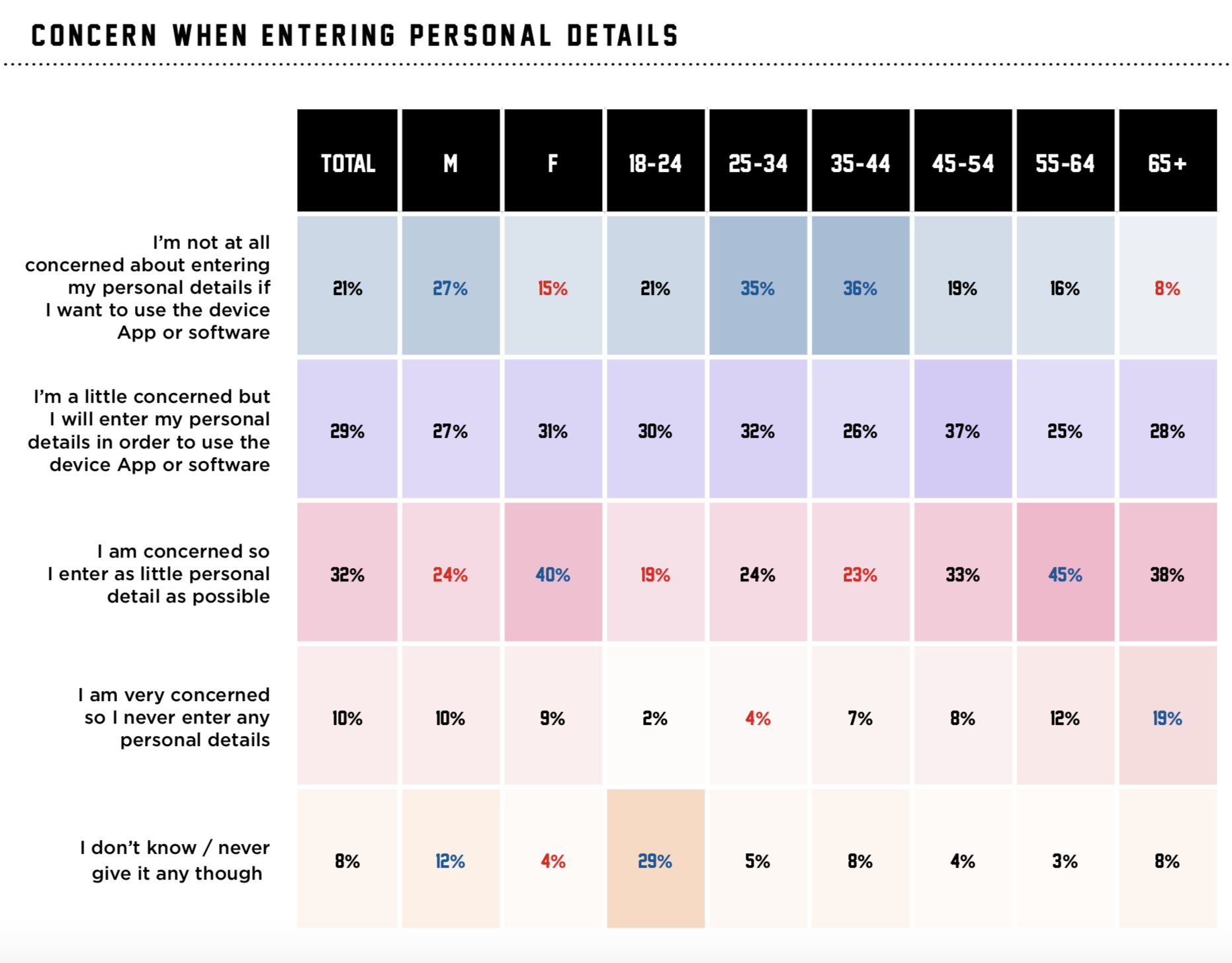
Users taking steps to ensure their personal security
There’s willingness in the lengths the typical American is going to when setting up usernames and passwords – just under half (42%) are fully committed to making their details secure, and 38% to a good extent
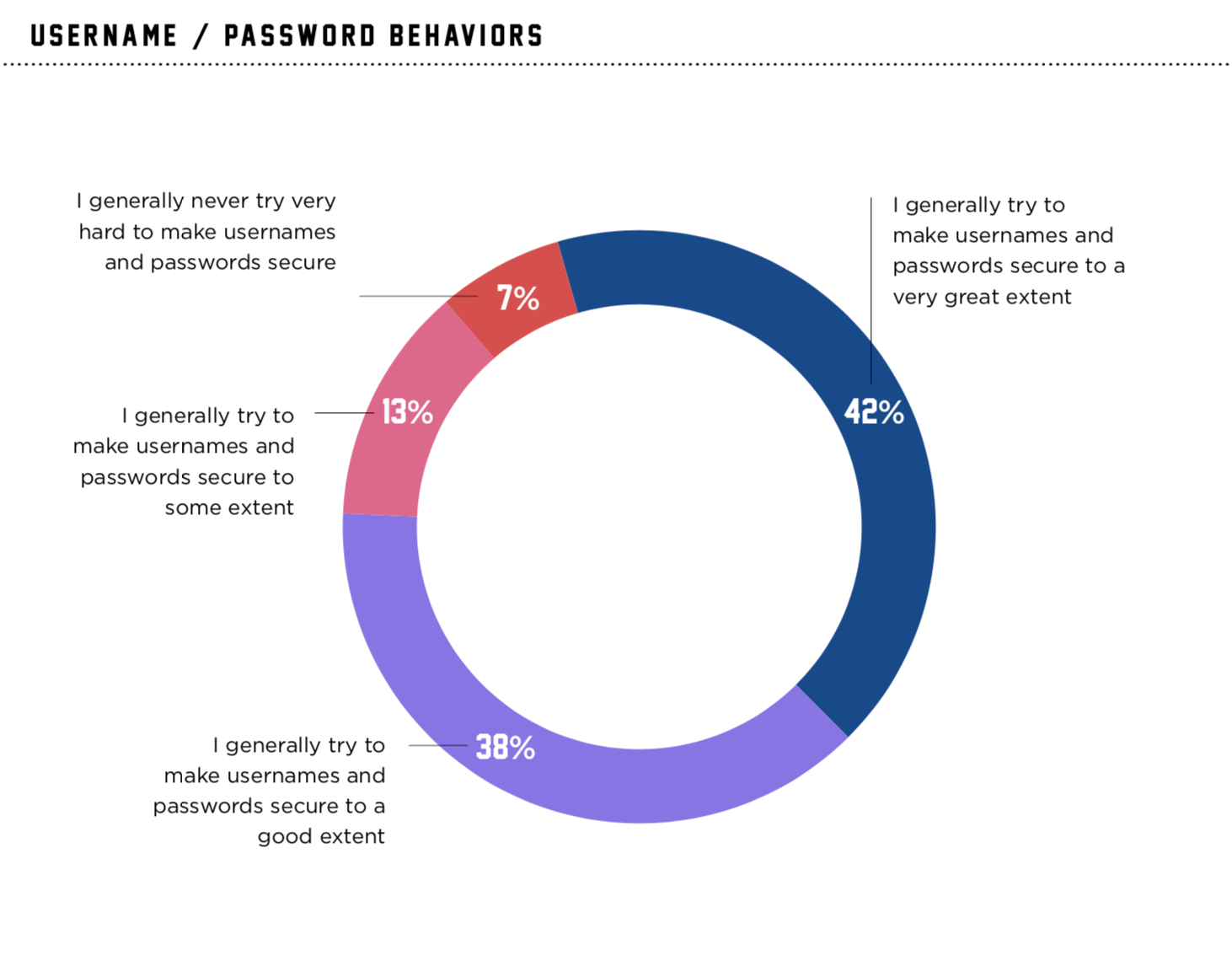
Yet the majority of Americans are using the same password across multiple devices
Close to two-thirds of Americans (64%), despite having concerns over privacy and security, admit to using the same password across multiple devices and applications. Males being the worst offender, with 72% not changing passwords
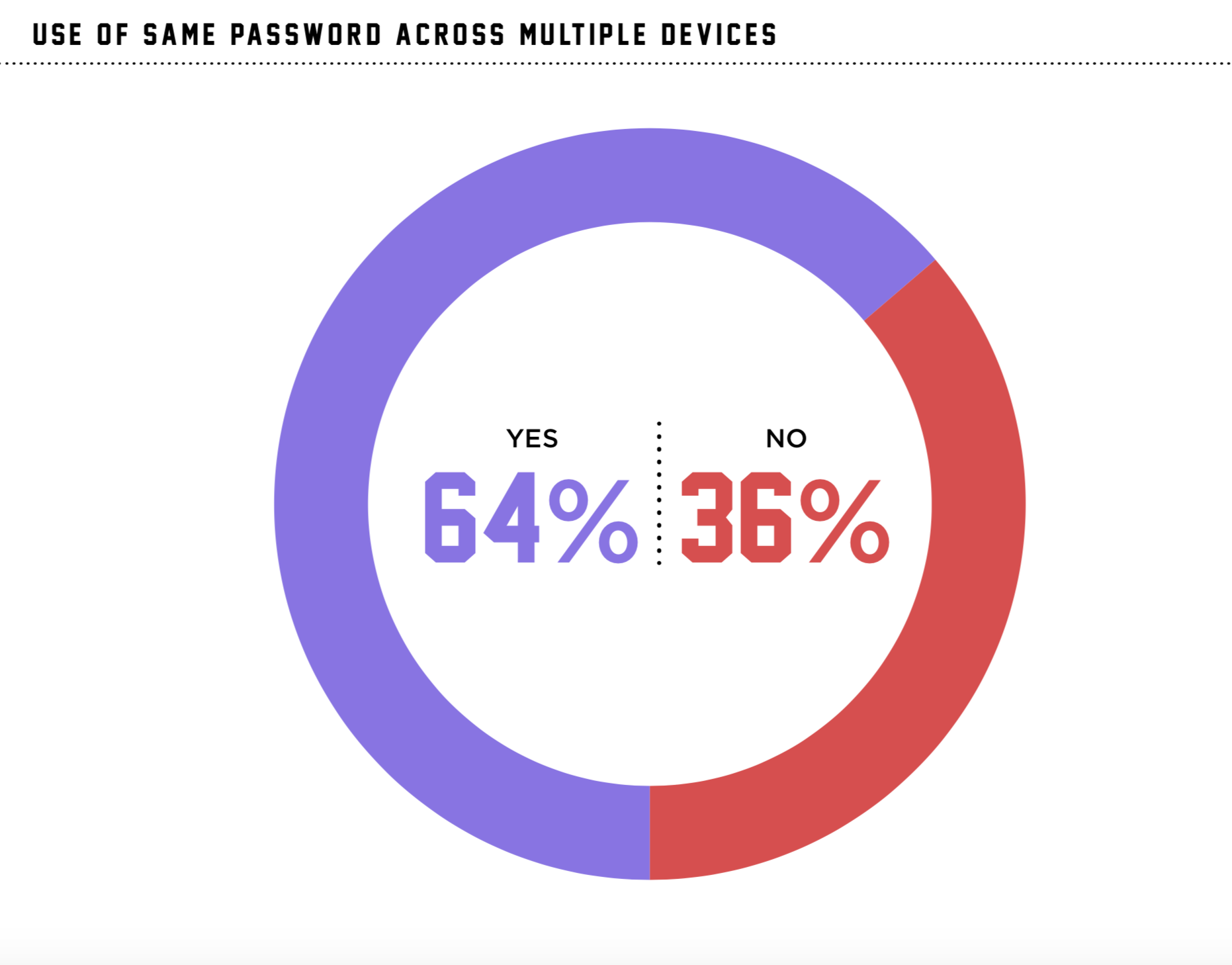
No consensus when it comes to sharing and selling of personal data
While over a quarter (28%) of Americans don’t believe that reputable device manufacturers would share/sell their details without express permission, a similar percentage have the contrasting perspective – 22% believe their personal data is widely shared/sold.
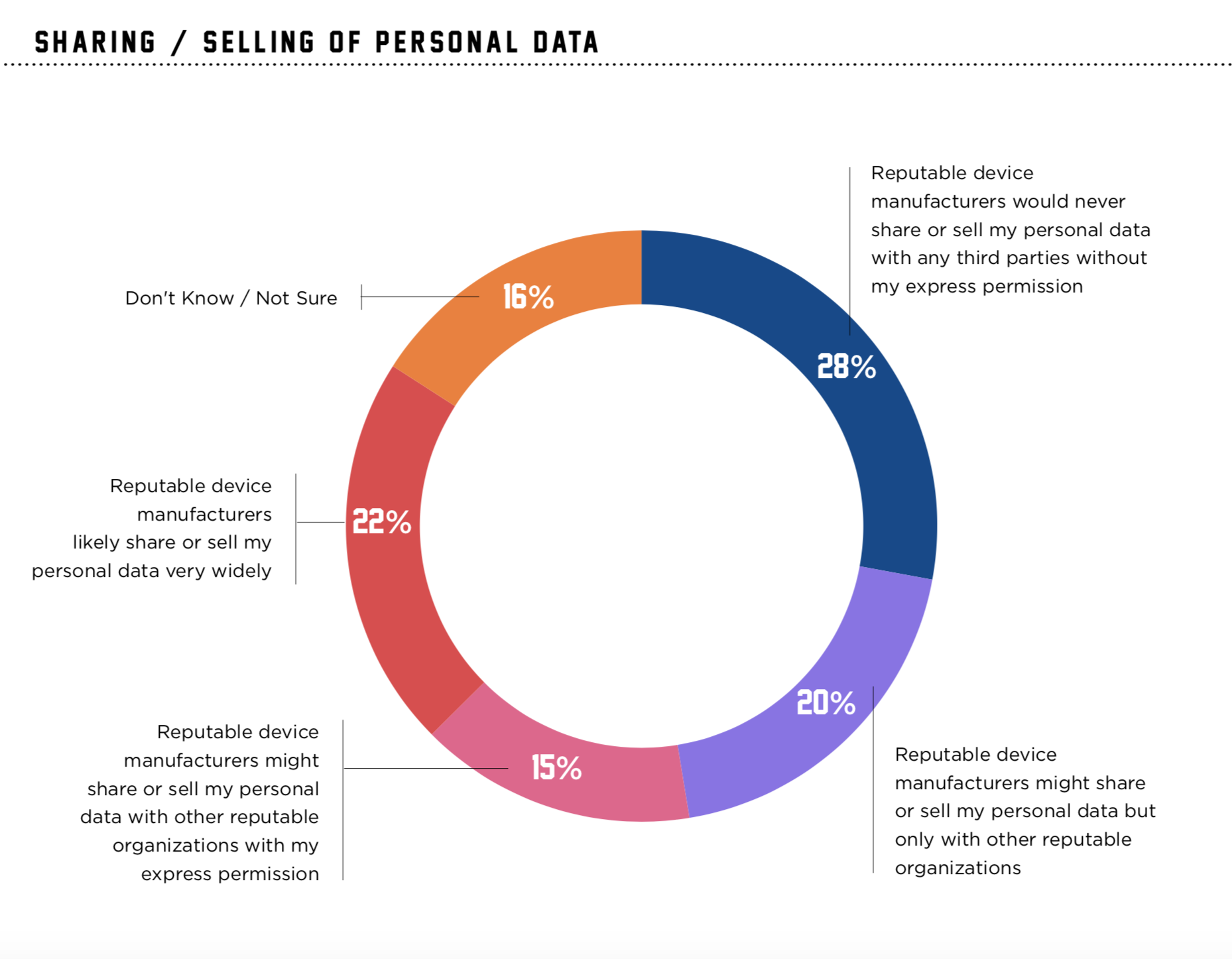
But the perception is the data belongs to the user
Close to half (47%) of Americans believe that data collected via the smart/connected devices they use belongs to the individual rather than the service provider / web developer, while 1 in 5 are unclear of the data ownership.
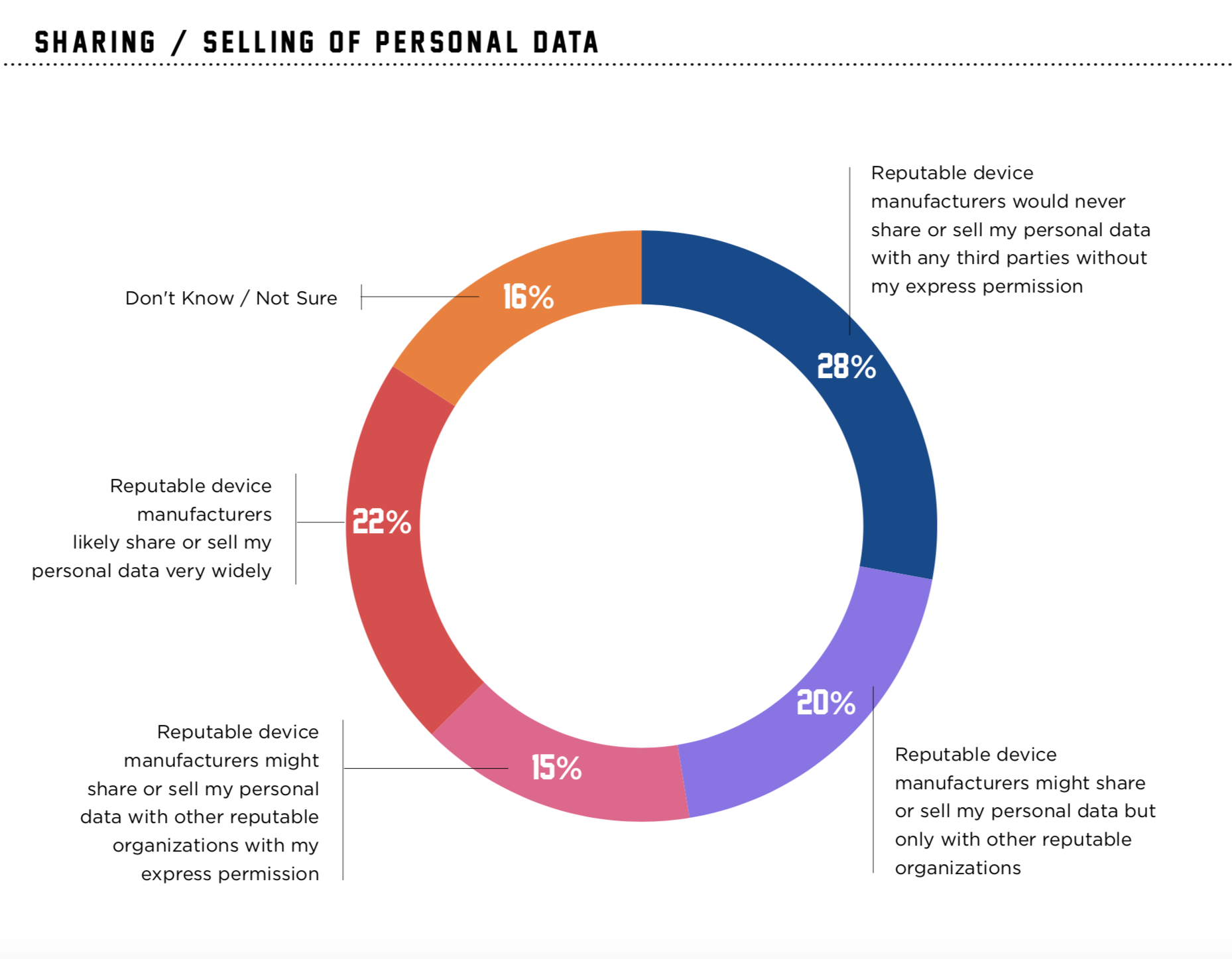
Sample
